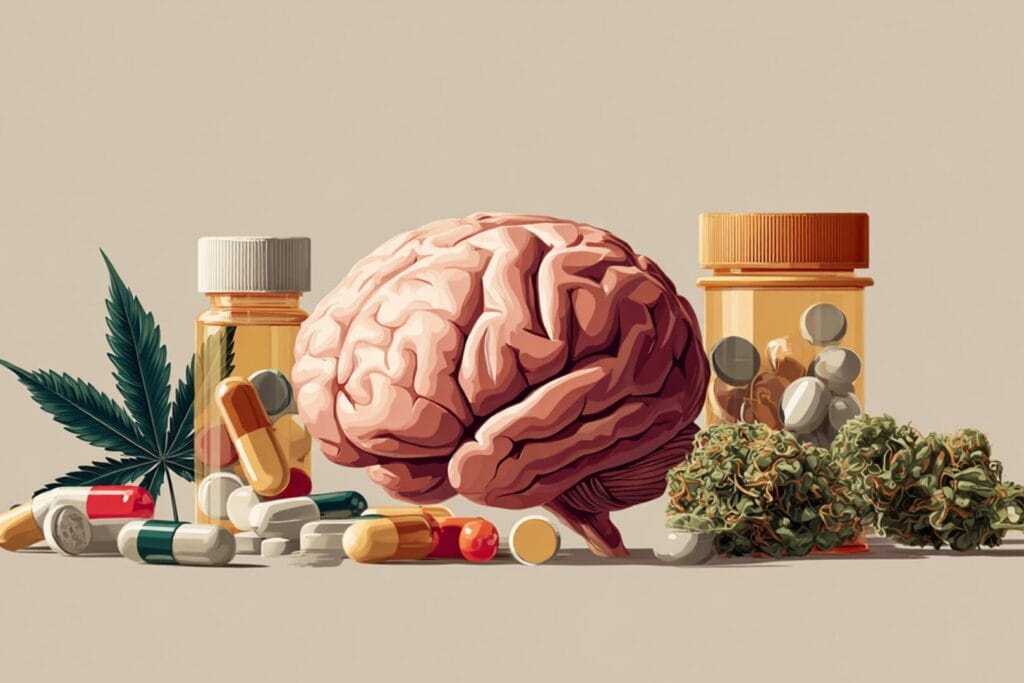You’ve probably heard it before—someone mentions they had a family member who had alcoholism, so they assume it runs in their blood. There tends to be the assumption that if one person in the family struggles with alcohol, everyone is bound to follow. But is that the case? Does alcoholism truly “run in the family,” or is there more to the story?
If you’ve seen the impact of alcohol up close and personally, it’s a question you may worry about. We’ll dig in and try to make sense of it all.
What Science Says About Genetics
We’ll talk about the science for a minute—yes, there’s some evidence that genetics play a role in whether someone struggles with alcohol. If your parents or grandparents, for example, had issues with alcohol, you might have a higher chance of facing the same challenge.
The thing to realize, though, is that your DNA isn’t a crystal ball that says with certainty you’re going to be an alcoholic.
Just because it’s possible doesn’t mean it’s your future or that you can’t overcome addiction if you do struggle with it.
Genes can make you more susceptible to alcoholism and addiction, but they’re not the whole story. Other factors like your environment, how you handle stress, and your choices are at play.
Science gives up some clues, but it doesn’t write the entire script for your life.
The Role of Genetics in Alcoholism and Addiction
Research shows certain genetic factors can increase the susceptibility to addiction, including alcoholism. Even so, there’s not a single alcoholism gene. Instead, it can be a combination of genetic variations that make some people more prone to developing addictive behaviors.
For example, some people might inherit a higher tolerance for alcohol, so they drink more than others to achieve the same effects over time, leading to dependency.
Genetics also influence addiction through the brain’s reward system. Our brains are wired to seek out pleasurable activities that trigger dopamine release. For some people, genetic differences in the reward system make them more sensitive to the effects of alcohol or drugs.
The increased sensitivity could mean that individuals experience a stronger sense of pleasure or euphoria when drinking, making it harder to resist the urge to keep doing it.
Conversely, some people have genetic variations that lead to lower dopamine levels or less efficient dopamine receptors. These could result in someone needing more alcohol to get the same pleasurable effects others would experience more easily, which also increases the risk of addiction.
Family Studies and Heritability
Family studies have helped uncover the genetic links to alcoholism. For example, studies looking at twins and adopted children have shown genetics can account for about 50-60% of the risk for developing alcoholism.
Identical twins with the same genetics are more likely to struggle with alcoholism if one does compare to fraternal twins. Fraternal twins only share around 50% of their genes.
Environment and Upbringing: The Other Piece of the Puzzle
Now, let’s look at the other side of the coin—how your environment and upbringing come into play. Growing up in a home where drinking is part of the daily routine can have a big impact on how you view alcohol. It becomes a normal or even expected part of life if you always see your parents unwind with a glass of wine or a beer after a long day.
You might grow up thinking that’s just what adults do.
Seeing family members drink regularly as you’re growing up sets the stage for how you might approach alcohol yourself.
It’s not just about your genes—it’s about what you learn along the way, and sometimes learned behaviors can be more influential than genetics.
Epigenetics is an emerging research field examining how environmental factors influence the expression of genes. With addiction, this means that while someone might have a genetic predisposition to alcoholism, their environment can either increase or decrease the risk of those genes being activated.
Experiencing trauma, having easy access to alcohol, or growing up in a stressful environment are all things that can interact with a genetic predisposition and potentially lead to addiction.
The Role of Stress and Coping Mechanisms
How we cope with the stress of life can make a difference in whether or not we turn to alcohol to manage it. For some people, drinking after a long or stressful day can become a go-to solution.
Some people might be more resilient and find healthier ways to deal with stress, but it’s important to remember that we can learn and change how we handle challenges.
Even if turning to alcohol was something you always saw modeled as a coping mechanism, it’s not the only option.
When you develop healthier coping mechanisms, it can make a difference in the ways you deal with stress and can help you break the cycle of using alcohol as a crutch.
Breaking the Cycle
The good news is that just because alcoholism runs in your family doesn’t mean you’ll automatically follow the same path. Understanding that you might be at a higher risk is empowering. By knowing the risks, you can take proactive steps to protect against alcoholism through making conscious choices, like finding healthy strategies to cope with stress or being aware of how alcohol affects you.
At San Diego Detox, we understand how complex addiction is and the challenges that come with breaking free from the cycle.
Our compassionate team is here to help you take crucial steps toward a healthier future.
Whether you’re looking for detox, inpatient treatment or holistic support, we offer a range of personalized treatment options to meet your needs. While you create your own path, we’re also here to walk with you every step of the way.
If you’re ready to break the cycle and reclaim your life, we offer the tools, guidance, and support you need, so don’t wait—reach out to make a lasting change or help your loved one take the first step.
Frequently Asked Questions
No — having a family history raises your risk, but it does not guarantee you’ll develop alcoholism. Environmental factors, personal choices, and life experiences also play major roles.
Yes — genetics can significantly increase a person’s risk of developing alcohol use disorder (AUD). Studies estimate that roughly 50–60% of the overall risk comes from inherited genetic factors.
Environmental factors — such as exposure to alcohol in the household, stress, coping habits, and social influences — shape whether genetic predisposition translates into actual alcohol misuse or addiction.
Because genetic predisposition only accounts for part of the risk; individual life experiences, mental health, stress levels, social environment, and personal decisions all interact with genetic factors to influence whether someone actually develops AUD.
Talking to a partner about alcohol addiction is often easier when you choose a calm moment, focus on specific behaviors rather than blame, and express concern from a place of support, and understanding how to tell a partner about alcohol addiction can help guide a more productive and compassionate conversation.







